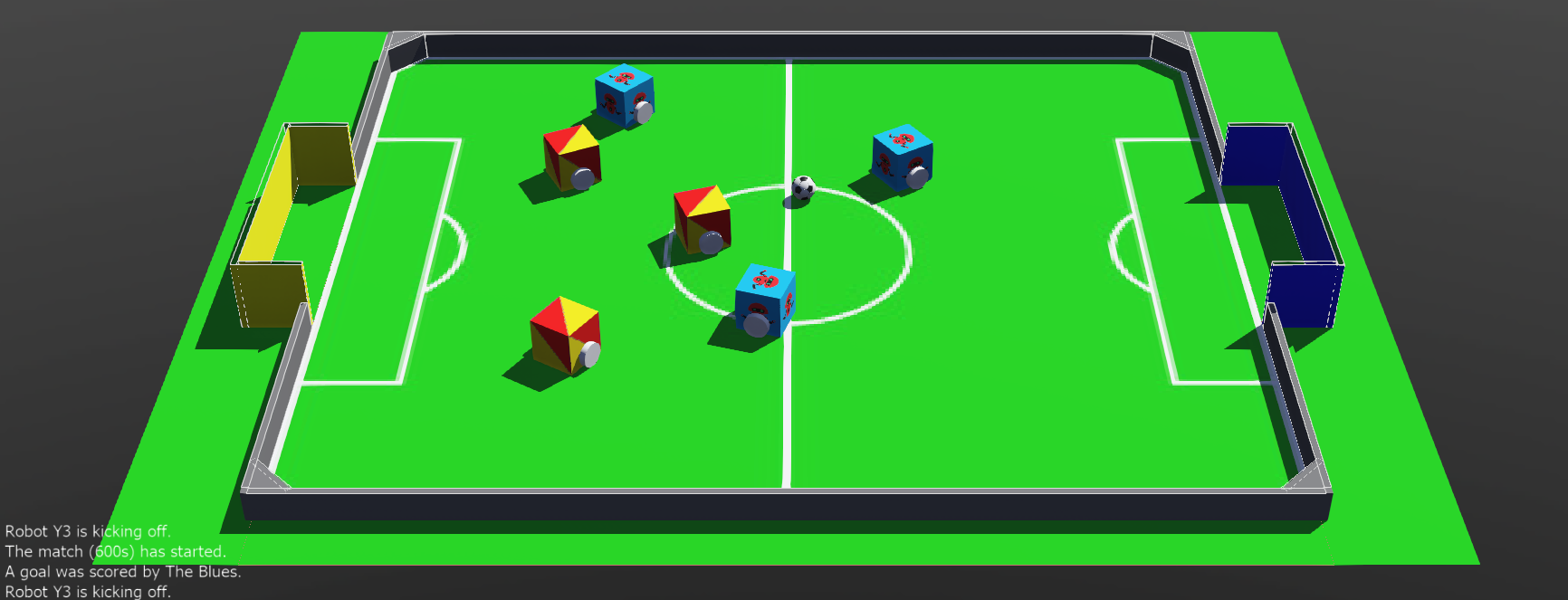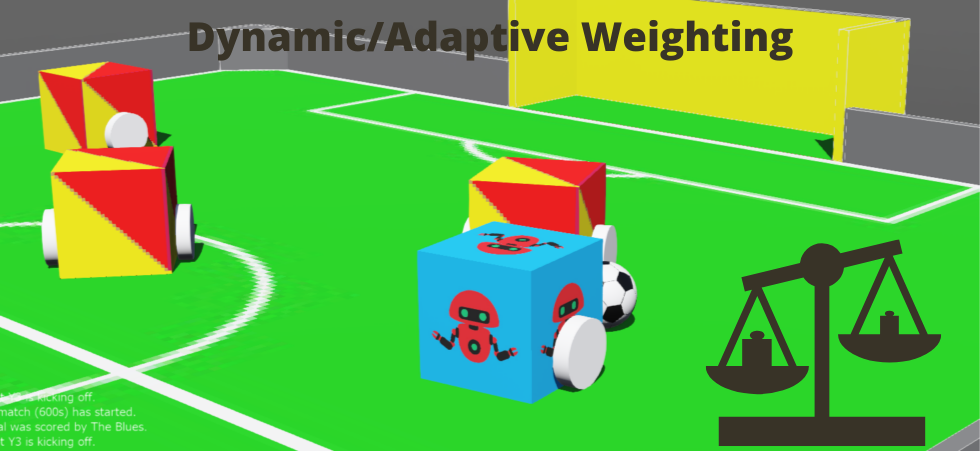
Dynamic Weighted Algorithms in RCJ Soccer
Dynamically Weighted algorithms may be one of the future steps that TFA Junior Robotics Team takes in the upcoming June 2021 RCJ Competition.
This idea involves having numerous different strategies, techniques, or algorithms, and applying a dynamic weight. For example, if an algorithm is successful in scoring a goal, then perhaps the weight of this algorithm increases. In essence, a good dynamically weighted algorithm will find the best strategy against opponents, resulting in a better chance at scoring the further the match plays out. In other words, a dynamic weighted algorithm will help teams improve robustness by adapting to scenarios on the fly. The TFA Junior Robotics Team may decide to use dynamic algorithms at the next iteration of events.
What is the reward?
The dynamic relationship between multiple variables takes a long time to create, and can be arduous at first. However, a proper dynamic weighted algorithm can result in in lots of success, as the opponent’s weakness is exploited. A team can reap the rewards of a problem in the opposing team’s code, and score the max amount of goals. In addition, a team can adapt to different teams, against numerous different strategies and techniques. For instance, a static algorithm would not adapt to every single opponent in the world, whereas a dynamic algorithm would. Therefore, a team can ensure that they are prepared for any challenge posed by any team.
What are the next steps?
The TFA Junior Robotics Team is currently consolidating their strategies and determining the viability of pursuing and creating a dynamically weighted algorithm.
What are the drawbacks?
There are of course, some drawbacks to a dynamically weighted algorithm.
If a dynamically weighted algorithm ends up having a small flaw, one can easily get beaten in all of one’s matches. For example, if there is one weight that turns out to be flawed, then one risks the entire algorithm failing.
Another drawback would be the time necessary for a Dynamic Algorithm to be implemented. In a match, there are only 10 minutes, so without enough trials, one risks using inaccurate or inconsistent results. This could also cause issues if the weight does not have enough time to generate the most accurate result. A 45 minute match would result in a more accurate dynamically weighted algorithm than one in 10 minutes.
Finally, one risks getting lucky sometimes instead of actually winning. For instance, if one adds “points” or weight to a flawed algorithm thanks to an own-goal or something that a dynamic algorithm did not control, then the algorithm can be falsely correct. This can result in a “false-positive” type of result, with inaccurate, and ultimately incorrect dynamic weight. As a type of Monte Carlo method, it is essential that the data one collects fits a pattern, and is not totally random and incomputable.


